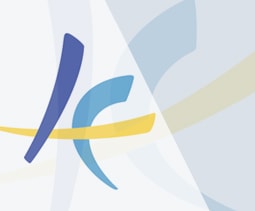The ‘HARMOS’ PROJECT
The ‘HARMOS’ project (2004-2006), supported by the eCONTENT Programme and coordinated by the Fundacion Albéniz, aimed at the development of on-line educational materials based on video footage of masterclasses and music lessons in various European conservatoires.
HARMOS is a collection of audiovisual contents that belong to the musical heritage where education is the principal part and the project’s main objective. It implies the application of state-of-the-art technologies in the areas of: audio processing and recognition for automatic audiovisual segmentation, tagging,segmenting, storing, retrieving and securing digital multimedia data.
The objectives of the HARMOS project were:
- To define content categories and ontologies for data to be included in the pilot digital European collection.
- To identify and prepare the multimedia content, and to customize and demonstrate a media management system.
- To customize and demonstrate new automatic audiovisual content segmentation tools.
- To customize and apply a collaborative annotation system to auto-generate new content to be included in the final demonstration.
- To develop a pilot training course available online.
- To develop and evaluate a final demonstrator for the European Multilingual digital data collection for Multimedia and Music Heritage.
The project focused on music heritage and popular music in the context of eLearning, with the participation of renowned European music schools and national conservatories:
- Escola Superior de Música de Catalunya (Barcelona, Spain)
- Lithuanian Academy of Music (Lithuania)
- Koninklijk Conservatorium Brussel (Belgium)
- Staatliche Hochschule für Musik Stuttgart (Germany)
- Royal College of Music (UK)
- Escola Superior de Música do Instituto Politécnico do Porto (Portugal)
- Fundación Albéniz (Madrid, Spain)
The project had a dual purpose: to preserve and enrich our European musical training heritage and to create a “virtual” conservatory. To that end, each of the participating partners had to contribute 75 hours of video-recorded courses (by their own staff as well as master classes – the Fundación Albéniz has provided 250 hours of instructional material!). The archive boasts a total of 700 hours of courses. The choices of instructors and master classes to be included are determined by the offer of the participating institutes and coordinated by the Fundación Albéniz.
These courses were analysed and arranged into instructional fragments in a subsequent phase. The fragments were then divided into categories (composer, work, instructional content of the fragment, etc.).
This fully analysed archive is available to the participating partners through a closed network. This means that our students can enter a few key words in the computer (composer, work and specific problem) to consult the courses of different instructors on that specific problem. This project was an important initiative to preserve and enrich our European musical training heritage.






